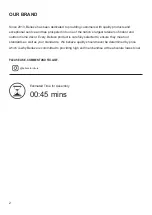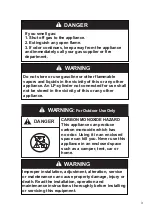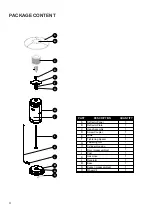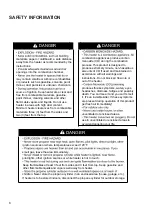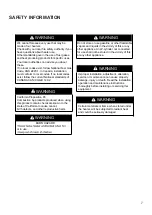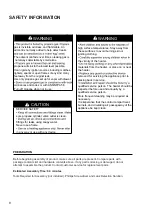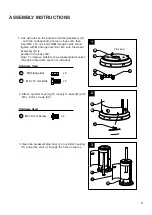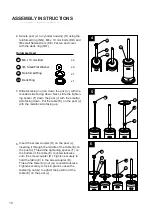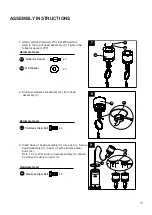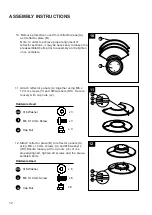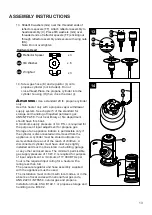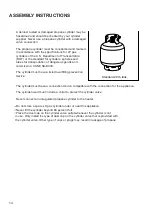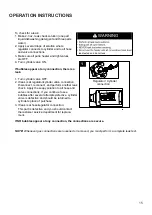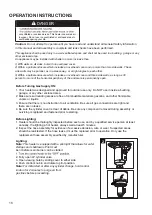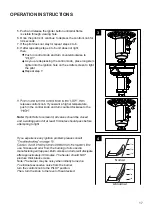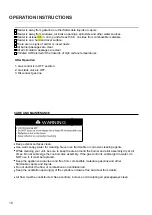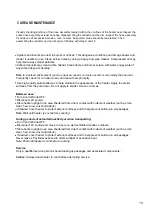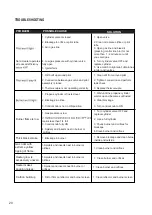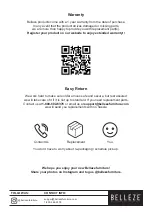
16
DANGER
unventilated or enclosed areas. This heater consumes air
(oxygen). Do not use in unventilated or enclosed areas to
avoid endangering your life.
Before Turning Gas Supply ON:
1. Your heater was designed and approved for outdoor use only. Do NOT use it inside a building,
garage, or any other enclosed area.
2. Make sure surrounding areas are free of combustible materials, gasoline, and other flammable
vapors or liquids.
3. Ensure that there is no obstruction to air ventilation. Be sure all gas connections are tight and
there are no leaks.
4. Be sure the cylinder cover is clear of debris. Be sure any component removed during assembly or
servicing is replaced and fastened prior to starting.
Before Lighting:
1. Heater should be thoroughly inspected before each use, and by a qualified service person at least
annually. If relighting a hot heater, always wait at least 5 minutes.
2. Inspect the hose assembly for evidence of excessive abrasion, cuts, or wear. Suspected areas
should be leak tested. If the hose leaks, it must be replaced prior to operation. Only use the
replacement hose assembly specified by manufacturer.
Lighting:
Note:
This heater is equipped with a pilot light that allows for safer
startups and shutdowns. Pilot must
be lit before main burner can be started.
2. Fully open LP cylinder valve.
3. Open viewing hole by sliding cover to either side.
4. Push control knob in and rotate to pilot position.
Note:
For initial start or after any cylinder change, hold control
knob in for 2 minutes to purge air from
gas lines before proceeding.
Caution:
Do not attempt to operate until you have read and understand all General Safety Information
in this manual and all assembly is complete and leak checks have been performed.
2
OPERATION INSTRUCTIONS
This appliance shall be used only in a well-ventilated space and shall not be used in a building, garage or any
other enclosed area.
An appliance may be installed with shelter no more inclusive than:
1) With walls on all sides, but with no overhead cover.
2) Within a partial enclosure which includes an overhead cover and no more than two side walls. These
side walls may be parallel, as in a breezeway, or at right angles to each other.
3) Within a partial enclosure which includes an overhead cover and three side walls, as long as 30
percent or more of the horizontal periphery of the enclosure is permanently open.

